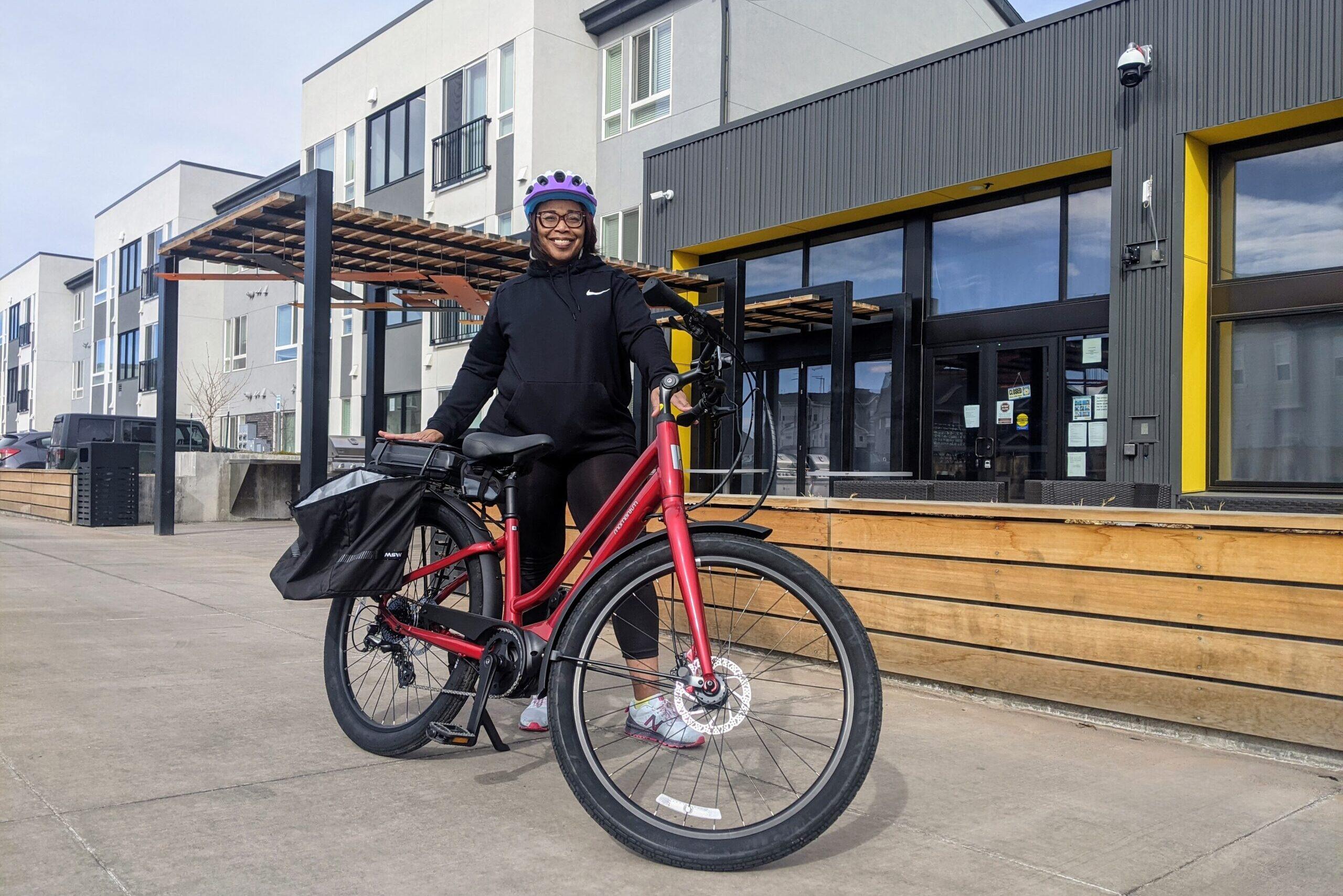
Growing up in Los Angeles, Shalon Bowens remembers looking forward to a new bicycle on Christmas morning. The gift was her ticket away from adults and out into the neighborhood, an excuse “to get outside and do something.”
Bowens, who now lives in Denver, couldn’t help but recall that moment last October when the state of Colorado gave her a brand new, ruby red electronic bike along with a pump, a helmet and a lock — all for free.
“I cried. I did. I was so happy,” she said.
Today, Bowens uses her bike to get to her job at It Takes A Village, a sexual health clinic on East Colfax Avenue in Aurora. As a low-income essential worker, she qualified for Colorado’s initial “mini-pilot” for free e-bikes. Twelve other Denver-area residents also received full e-bike setups through the program.
Colorado is now gearing up for a second giveaway. The Can Do Colorado eBike Pilot will award more than 100 e-bikes with $560,000 from the Colorado Energy Office, the City of Denver and the Regional Air Quality Council.
Unlike the first round, individuals can’t apply for a free e-bike. Instead, organizations had to submit concepts before the end of January to manage the bikes for the benefit of essential workers.
Will Toor, the director of the Colorado Energy Office, said the pilot program came in response to the pandemic. Last spring, his office started hearing stories about essential workers who had decided to avoid the closed confines of buses and light rail cars and instead some used their own cars to get around. RTD later cut some of those routes altogether.
Going forward, Toor thinks e-bikes could play a much larger role as Colorado confronts the threat of climate change. Transportation now accounts for more emissions than any other sector of Colorado’s economy. A lot of those emissions come from Coloradans driving bikeable distances. According to the U.S. Department of Energy, three-fifths of each household’s 2017 car trips, nationwide, were six miles or less.
“I think there is significant potential over time for e-bikes to play a really important role in replacing a lot of those short-to-medium distance automobile trips,” Toor said.
The strategy is one of many transportation plans outlined in Colorado’s recent climate change “roadmap,” which spells out how Gov. Jared Polis intends to meet emission reduction goals passed by the legislature in 2019. The plan has received fierce criticism from environmental advocates, who complain the policy outline lacks specifics and didn’t include enough input from marginalized communities bearing the brunt of climate change.
Toor said equity “is really important” as Colorado tries to get people out of internal-combustion cars. He noted the Colorado Energy Office supported Xcel Energy’s recent plan to provide $5 million in rebates for low-income electric car buyers. (What Toor didn’t mention is Colorado’s Public Utilities Commission shot down a plan his office submitted for $30 million in rebates. Some PUC members did not like that the plan would have incentivized luxury cars.)
Meanwhile, the e-bike pilot is showing early signs of success. Jack Todd has helped administer the program for Bicycle Colorado, a nonprofit advocacy group. He said interviews with participants show they’ve replaced car trips with bike trips about three times per week.
The program also had participants log their activity through a phone app. Todd said the National Renewable Energy Laboratory in Golden is now reviewing the data.
“We know participants are using them a lot and really enjoying them,” Todd said.
That’s certainly the case for Bowens, who said the bike has helped her mental and physical health. The electric assistance can propel her at 20 miles per hour, but she still has the option to pedal along when she wants a workout. Bowen said that’s helped her lose 70 pounds over the last year.
“I love this bike,” she said. “I really do.”









